Discover Your Roots
SIGN UPDiscover Your Roots
SIGN UPGaetano is a male name of Italian origin, meaning "From Gaeta, Italy." It is derived from the Latin Caietanus, indicating people from the modern city of Gaeta. The name has been in use in Italy since the medieval period and is also used as a surname. Saint Gaetano dei Conti di Tiene, canonized in 1671, played a significant role in popularizing the name. Variants of the name exist in other Romance languages, such as Gaëtan in French, Caetano in Portuguese, and Cayetano in Spanish. The feminine form of the name is Gaetana, also appearing as Caetana and Cayetana. Notable individuals with the name Gaetano include Italian-American computer scientist Gaetano Borriello, Italian composer Gaetano Donizetti, and Catholic saint Gaetano dei Conti di Tiene. The name has also been used as a surname, as in the case of Italian professional footballer Gianluca Gaetano.
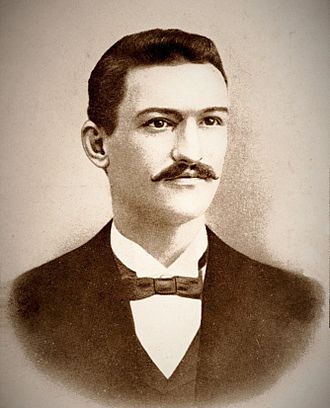
Gaetano Bresci, born in 1869 in Prato, Tuscany, was an Italian anarchist known for assassinating King Umberto I of Italy. Growing up in a family affected by economic hardship due to the import of cheap grain from the United States, Bresci developed a deep-seated resentment toward the Italian state. His experiences as a young weaver fueled his involvement in the Italian anarchist movement. Bresci's radicalization led to confrontations with the police, imprisonment, and eventual exile to Lampedusa. Upon his return to the mainland, he immigrated to the United States, where he became an active member of the anarchist movement in Paterson, New Jersey.In 1898, Bresci was deeply affected by the Bava Beccaris massacre and decided to seek revenge on King Umberto I. He purchased a revolver and returned to Europe, where he assassinated the king in 1900. Despite suspicions of a conspiracy, evidence suggested that Bresci acted alone. He was sentenced to life imprisonment but was found dead from an apparent suicide within the year. Bresci's regicidal act elevated him to martyrdom in the Italian anarchist movement and inspired similar acts among anarchists, including the assassination of U.S. President William McKinley. Despite governmental opposition, Italian anarchists erected a monument to honor Bresci in Carrara.Bresci's life is a testament to the impact of economic hardship and exploitation on individuals, as
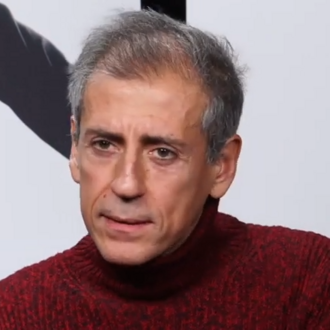
Gaetano Bruno, born on July 26, 1973, is a renowned Italian actor hailing from Palermo. Despite starting his academic journey in economics, he found his true calling in acting and pursued his passion at the esteemed Scuola del Biondo drama school at the Teatro Biondo. Bruno has graced both the big and small screen with his talent, leaving a lasting impression in the world of entertainment. His personal life is marked by his relationship with actress Elena Radonicich, with whom he shares a daughter. Bruno's notable contributions to the film and television industry have solidified his status as a prominent figure in Italian cinema. His remarkable work can be explored further through his filmography and IMDb page.
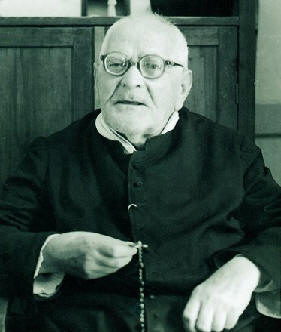
Gaetano Catanoso (14 February 1879 – 4 April 1963) was an Italian Catholic priest known for his dedication to spreading devotion to the Face of Jesus and his pastoral work. He founded the Suore Veroniche del Santo Volto and the Poor Clerics to encourage vocations to the priesthood, and he also established the Confraternita del Santo Volto to promote devotion to the Face of Jesus.Catanoso was born in 1879 in Reggio Calabria and began his studies for the priesthood in 1889. He served as a parish priest for his entire ecclesial life and was renowned for his efforts to bring the Gospel message to remote mountain villages, often hiking or riding on a mule to reach isolated communities.His deep devotion to the Face of Christ led him to establish the "Confraternita del Santo Volto" and to promote Marian and Eucharistic devotions. He also worked to improve catechesis and cooperation among local priests, as well as providing missions through preaching and hearing confessions.Catanoso's exemplary life of heroic virtue led to his beatification by Pope John Paul II in 1997 and his canonization by Pope Benedict XVI in 2005. His order, the Suore Veroniche del Santo Volto, received full pontifical approval from Pope John Paul II in 1980, and his legacy continues to inspire devotion and service to others.In summary, Ga
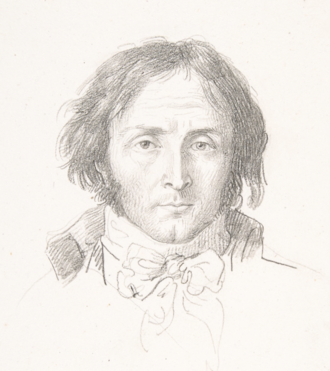
Gaetano Rossi (1774-1855) was an influential Italian opera librettist who collaborated with renowned bel canto-era composers such as Gioachino Rossini, Gaetano Donizetti, and Giacomo Meyerbeer. Born in Verona, Rossi began writing religious verse at a young age and went on to produce libretti for approximately 60 years. His notable works include librettos for operas like Tancredi and Semiramide for Rossini, Il crociato in Egitto for Meyerbeer, and later operas for Donizetti such as Maria Padilla and Linda di Chamounix. Rossi's success stemmed from his ability to find foreign sources and introduce romantic plots to the Italian stage. While some critics described his writing as having crude versification, they acknowledged his talent for creating effective and dramatic texts. In addition to his writing, Rossi also served as the stage director for the Teatro Filarmonico in Verona. His contributions significantly impacted the opera world during his era.References:Black, John (1998), "Gaetano Rossi", in Stanley Sadie (Ed.), The New Grove Dictionary of Opera, Vol. Four, pp. 52–53. London: Macmillan Publishers, Inc. ISBN 0-333-73432-7 ISBN 1-56159-228-5
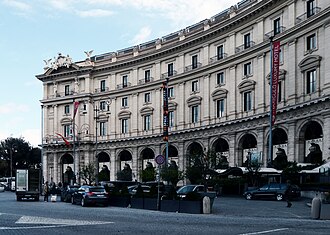
Gaetano Koch (9 January 1849 – 14 May 1910) was a renowned Italian architect known for his significant contributions to the architectural landscape of Rome. His notable works include the Palazzo Koch, which housed the National Bank (later Bank of Italy), as well as the impressive porticoed palazzi that shape the Piazza della Repubblica and the central Piazza Vittorio. Koch's architectural imprint also extends to other prominent structures in Rome, such as the Palazzo Mengarini and the Palazzo Margherita, which currently serves as the American Embassy to Italy on Via Veneto. His collaborative efforts resulted in the design of the Monument to Vittorio Emanuele II, further solidifying his legacy in Italian architecture. Koch's artistic prowess is also evident in the exquisite decoration of the main hall of the Palazzo Comunale at Recanati. Gaetano Koch's enduring influence and architectural masterpieces continue to captivate and inspire admirers of fine craftsmanship and design worldwide.
All images displayed on this page are sourced from Wikipedia or Wikimedia Commons.We use these images under their respective Creative Commons or public domain licenses. Wherever applicable, author attributions and license information are provided. If you believe an image is used incorrectly or outside its license terms, please contact us so that we can review and correct the issue.